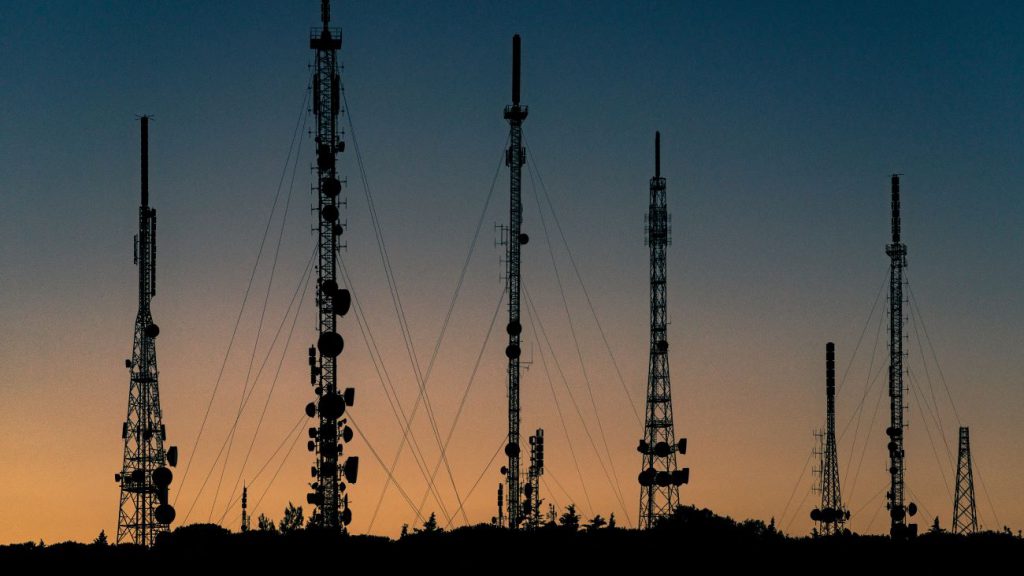
Has your business considered adopting satellite communication, but you’re unsure if you’re making the right decision? When it comes to cellular vs. satellite communication, there are differences and use cases for both choices. If you’re a first responder or a public safety agency that saves or protects lives, your selection could be crucial.
While cell phones are convenient and almost universally used, they are not always the most reliable means of communication. But are satellite phones overkill? Today we’ll look at cellular and satellite communication methods to help you decide which is best for your business.
Are Cellular and Satellite Communication the Same Thing?
In a word, no. While the result (communicating on a mobile device) may seem the same, the technology used to power each service is quite different.
How Do Cellular and Satellite Communications Work?
Cellular communications use electromagnetic radio waves to send and receive sounds and data. The waves are beamed from your phone’s antenna to the nearest land-based cellphone tower. Each of these towers forms a cell — an area the transmitters cover. A group of cell towers forms a cellular network.
When you’re physically moving while on a call, your call’s signal carries to the next closest tower. If you move too far away from any towers, the signal becomes weaker. The result? You get dropped calls and the dreaded “no service” message.
Satellite communications transmit data through Earth-orbiting satellites, not land-based towers. Data from a satellite device flows directly to the orbiting satellite. A signal is sent to the nearest land-based station (or gateway), communicating the receiving device’s data. These devices can be satellite phones, cell phones or landlines.
Cellular Vs. Satellite: Which Offers Better Coverage?
The provider often dictates cell coverage. Since cell towers have limited ranges, it depends on the number of towers a provider can afford to install. People or businesses in rural areas, mountain areas or undeveloped countries usually lack sufficient cell service, as cell towers are installed based on demand.
Since satellites orbiting the Earth do not rely on towers, they offer much better coverage. Satellite services are generally preferred over cell technology, especially for first responders or remote teams.
Why Should I Choose One Over the Other?
While cellular phones work well in most metropolitan areas, they may not work in remote locations. In emergency situations, cell phones may not make or sustain connections, resulting in lost time when communication is desperately needed.
If you need constant connectivity in remote areas — or even during power outages — satellite devices are your best bet.
Here are some benefits of using satellite communications over cellular:
- Business continuity: Satellite connectivity helps complete any disaster recovery plan, giving key personnel a reliable communications backup during and after an emergency.
- Multiple teleports: Satellite technology provides redundancy that ensures uninterrupted service during a disaster.
Can I Use Both Cellular and Satellite?
Yes! For the best of both worlds, IP Access’s SuperGIG™ technology combines cellular and satellite.
SuperGIG™ adds redundancy to public safety agencies, critical infrastructure, and businesses operating in remote or field locations. In the event of cellular connectivity disruptions, the network automatically switches to satellite, and vice versa, without requiring user intervention or configuration, ensuring uninterrupted coverage.
SuperGIG’s flexible solution streamlines hardware, simplifies installation and consolidates services under a single, convenient bill for your business.
Choose IP Access for Your Cellular and Satellite Communication Needs
If your business relies on communication channels as a lifeline, consider our cutting-edge SuperGIG™ technology for the ultimate in combined cellular and satellite connectivity. Whether you prefer satellite phones for comprehensive coverage or desire the added protection of our cellular/satellite hybrid solution, SuperGIG™ has you covered.
Benefit from our high-performance mobile satellite bandwidth, unparalleled redundancy, and exceptional mobility, giving you the utmost confidence in the field, whether for voice, data, internet, or video applications.
Ready to discuss your satellite communication needs? Our expert team is here to craft a tailored solution that precisely meets your requirements. Whether you require turnkey rental solutions or preventative maintenance programs, IP Access is committed to serving you with excellence.
Contact us today to experience the power of SuperGIG™.